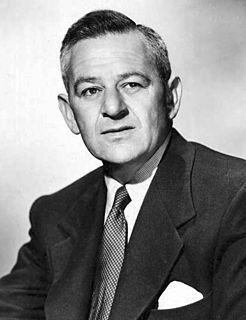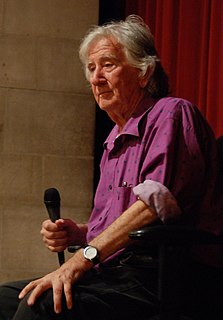A Quote by Aristotle
In constructing the plot and working it out with the proper diction, the poet should place the scene, as far as possible, before his eyes. In this way, seeing everything with the utmost vividness, as if he were a spectator of the action, he will discover what is in keeping with it, and be most unlikely to overlook inconsistencies.
Related Quotes
Remember: Plot is no more than footprints left in the snow after your characters have run by on their way to incredible destinations. Plot is observed after the fact rather than before. It cannot precede action. It is the chart that remains when an action is through. That is all Plot ever should be. It is human desire let run, running, and reaching a goal. It cannot be mechanical. It can only be dynamic.
The further left you are, the more your concern for the underdog crowds out everything else, leading you to overlook inconsistencies. You might, for example, argue for immigration and multiculturalism in the UK, but not in the Amazon. You might demand equality before the law and, at the same time, gender quotas.
What is a scene? a) A scene starts and ends in one place at one time (the Aristotelian unities of time and place-this stuff goes waaaayyyy back). b) A scene starts in one place emotionally and ends in another place emotionally. Starts angry, ends embarrassed. Starts lovestruck, ends disgusted. c) Something happens in a scene, whereby the character cannot go back to the way things were before. Make sure to finish a scene before you go on to the next. Make something happen.
Those five fingers and that palm were like a display case crammed full of everything I wanted to know--and everything I had to know. By taking my hand, she showed me what these things were. That within the real world, a place like this existed. In the space of those ten seconds I became I tiny bird, fluttering in the air, the wind rushing by. From high in the sky I could see a scene far away. It was so far off I couldn't make it out clearly, yet something was there, and I knew that someday I would travel to that place.
Everything in this world happens for a reason yet nothing in this world comes free. Hard work, endurance, determination, persistence, and strong will are key, But without faith you can only go so far before you lose yourself We are all hearts, minds, bodies, and souls searching for something - you are not the only one, So search, and you shall discover, look, and you shall certainly find, read and you shall only behold that the most logical of all answers was always right there before your very eyes'
Whoever you are: in the evening step out of your room, where you know everything; yours is the last house before the far-off: whoever you are. With your eyes, which in their weariness barely free themselves from the worn-out threshold, you lift very slowly one black tree and place it against the sky: slender, alone. And you have made the world. And it is huge and like a word which grows ripe in silence. And as your will seizes on its meaning, tenderly your eyes let it go.
However intense my experience, I am conscious of the presence and criticism of a part of me, which, as it were, is not a part of me, but a spectator, sharing no experience, but taking note of it, and that is no more I than it is you. When the lay, it may be the tragedy, of life is over, the spectator goes his way. It was a kind of fiction, a work of the imagination only, so far as he was concerned.
Everything good is costly, and the development of personality is one of the most costly of all things. It is a matter of saying yes to oneself, of taking oneself as the most serious of tasks, of being conscious of everything one does, and keeping it constantly before one's eyes in all its dubious aspects.









































